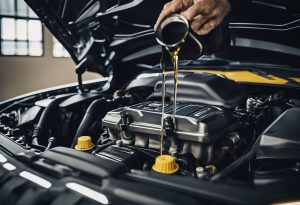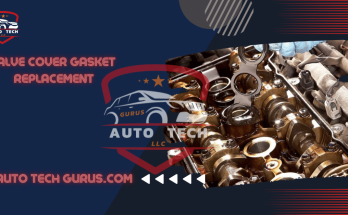Have you ever noticed that your car jerks when accelerating? Or maybe it pulls back or sputters when you step on the gas?
These symptoms can turn a smooth drive into a jarring experience.
Let’s explore the common causes behind “Why is my car putting?”.
Car Jerking When Accelerating
One of the most common complaints is the car jerking when accelerating. This sudden jerking, or car bucking, often stems from issues within the engine’s ability to ignite the fuel efficiently. Suppose your car jerks while driving at a constant speed or jumps when accelerating. In that case, it’s crucial to check several vital components.
Your Manual Transmission Expertise
“Experiencing a car jerking when accelerating at low speeds is common, particularly for drivers new to manual transmissions. If you’ve driven a stick-shift car before, you may have encountered the frustrating combination of a jerking car followed by an engine stall.
This issue typically arises when transitioning from neutral to first gear on an incline, especially after a brief pause. The solution lies in honing your clutch control and developing a feel for the engine. To overcome this, practice the following steps:
1. Press the clutch pedal all the way down.
2. Shift into first gear and gradually release the clutch pedal while simultaneously easing onto the gas pedal.
3. Perform this transition smoothly to avoid sudden jerking.
4. Pay attention to the car’s jerky motion and adjust your technique accordingly.
5. When shifting gears, ease off the clutch and onto the gas to ensure a seamless transition.
Remember to consult your driving instructor for further guidance if needed.
Spark Plugs and Ignition Coil
Worn-out spark plugs or a faulty ignition coil can be culprits. These components are crucial for firing your engine properly. If they aren’t working correctly, your car’s engine won’t ignite the fuel efficiently, leading to jerking or sputtering.
Fuel System Issues
Problems in the fuel system are also significant contributors. Dirty fuel injectors, clogged fuel injectors, or fuel pump issues can restrict fuel flow to the engine, causing your car to sputter when accelerating. A clogged fuel line or problems with the fuel pump can also manifest as car jerks when accelerating at low speeds in automatic vehicles.
Air and Exhaust Flow Problems
The correct amounts of air and fuel mixture are essential for smooth operations. Dirty air filters or a blocked catalytic converter can inhibit airflow, crucial for the combustion process in the engine’s combustion chamber. Similarly, a clogged catalytic converter can restrict exhaust flow, impacting engine performance.
Sensors and Pedals
The oxygen sensor (O2 sensor) and the mass airflow sensor are vital to regulating your car’s mixture of air and fuel. If these sensors send incorrect data to your car’s engine, you might notice jerking or stuttering. Additionally, issues with the gas pedal can also lead to unsmooth acceleration.
Transmission Fluid
The health of your car depends on your vigilant monitoring of the gearbox fluid levels. Think of it as the lifeblood of your transmission system. When it’s low or dirty, your car might exhibit some concerning symptoms, like jerking during acceleration. If your gearbox is jerking, it can be because it isn’t getting enough lubrication. It’s like running a machine without proper oil—things grind and jolt.

So, if you notice this jerking motion, it’s wise to check your transmission fluid levels. If they’re low, simply topping it off might do the trick. However, if the fluid is dirty or has been used for too long, it might be time for a complete fluid change. Regular maintenance in this area can prevent costly repairs and keep your ride running smoothly.
Check Engine Light: A Crucial Indicator
While addressing these issues, keep an eye on the check engine light. This light can activate for numerous reasons related to the topics mentioned, providing an early warning to prevent more significant damage.
Drained acceleration cable
A worn-out acceleration cable can cause a car to jerk or hesitate. If you notice your car taking longer than usual to respond when you press the accelerator or if it starts jerking, it may be a sign of a damaged acceleration cable. Upon inspection, you may also notice damage to the cable’s outer covering. To avoid sudden breakdowns, replacing the worn-out acceleration cable as soon as possible is essential. Take your vehicle to a mechanic to address the issue and prevent further problems.”
Clogged catalytic converter
The catalytic converter in your car is responsible for controlling exhaust emissions. However, the converter can become clogged when rich mixtures of air and fuel flow through it, causing a blockage. This blockage can result in a jerking or stuttering motion when you press the gas pedal, indicating a problem with the catalytic converter
Early Detection and Regular Maintenance

Noticing that your car idles fine but sputters when accelerating is an early indicator of potential problems. Regular checks and maintenance of your car’s engine, fuel, and air systems, along with timely replacement of faulty spark plugs and keeping an eye on the check engine light, are vital.
You can keep your car running smoothly and reliably if you know how to deal with these typical problems.
Remember that driving an automobile that has been well-maintained is safer and more pleasurable.
Summing Up
To address car jerking while accelerating, it’s essential to identify the underlying causes and implement effective solutions. Regular maintenance is crucial, including keeping all engine parts clean and well-lubricated. This is a vital tip for car owners to ensure optimal performance. Additionally, using the right type of gasoline for your car’s engine is vital to prevent jerking and promote smooth acceleration. Proper fuel usage is key to maintaining your car’s overall health and functionality.
FAQs



